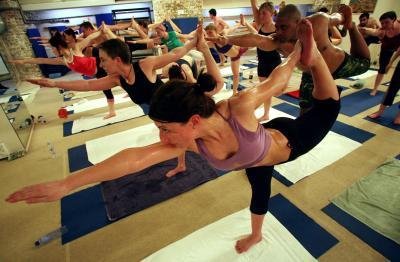LOS ANGELES, March 22 - RAPSI. One of the world’s most famous yoga gurus has been accused of sexual harassment and discrimination by a former protégé, according to the New York Post, which obtained a copy of the complaint filed earlier this month with the Los Angeles Superior Court.
Bikram Choudhury is the 67-year-old founder of an extremely popular form of yoga known as Bikram. Each class consists of 26 postures performed sequentially in a room heated to 40 degrees Celsius. The grueling practice has drawn scores of devotees, and its founder enjoys incredible celebrity in the US and Europe.
Sarah Braughn, the claimant, is a successful 29-year-old yoga teacher and competitor.
According to the New York Post report, Braughn claimed that Bikram had chased after her for years, culminating in an unwanted physical incident, before derailing her competitive Bikram career.
Braughn claimed to have noticed shortly after beginning to work under his tutelage as a second-year university student that he had a tendency to choose favorites among his female devotees “to brush his hair and massage his body.”
Braughn caught his attention in 2005 when, according to the complaint, he told her: “I know you from a past life. We have a connection. It is amazing. Should we make this a relationship?” Though “mortified,” Braughn continued to attend the guru’s classes.
The unwanted attention droned on, culminating in an incident where Bikram reportedly forced Braughn into a compromising position and egged her on with profane speech until she collapsed into a fit of sobs.
Braughn further accuses Bikram of having sabotaged what should have been her first-place prize in an international yoga competition in favor of a young devotee who happened to be sharing his hotel room at the time.
While world-renowned and unquestionably successful as far as yoga goes, Bikram is no stranger to controversy.
He received widespread criticism for attempting to copyright his yoga poses in a lawsuit that culminated in the US last year. The US Copyright Office released a rule addressing the topic specifically in June 2012, noting: “under the policy stated herein, a claim in a compilation of exercises or the selection and arrangement of yoga poses will be refused registration.” The lawsuit was ultimately settled.



